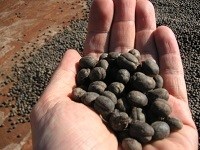The word Gourmet is used to refer to the fancier grade, cut, or quality of many of the foods and beverages we consume. Gourmet foods and drinks have long been considered as the regular fare for the rich and famous who can afford the higher pricing that often accompanies many of these finer food and beverage versions.
Coffee has been available in cheap, regular and gourmet versions for a long time and the consumption rate of coffee by people from around the world continues to increase every year. Gourmet coffee may have once only been served in the finest dining establishments and in the homes of primarily the upper class, but gourmet coffee is now widely available and affordable to nearly all economic levels and is found in a variety of settings today.
What Is Different About Gourmet Coffee Beans?
The beverage called coffee is made from coffee beans, which are found within the berries that develop and ripen on a number of smaller, tropical, evergreen bush plant species known as Coffea. After ripening, coffee berries are harvested and then undergo a processing which also includes cleaning, drying and fermenting them. What remains at the end of the process are coffee beans. The beans are then roasted to various degrees which cause them to change physically and changes the tastes they produce. Finally, the coffee beans are ground down into a fine consistency that is commonly known as coffee grounds, and packaged and shipped to destinations around the world where consumers can buy and brew coffee grounds to make coffee in commercial, hospitality, institutional, and residential settings.
The two most commercially grown species of the coffea plant that produce the coffee beans used to make the coffee that the world’s population consumes, are Robusta and Arabica. Gourmet coffee is made from the top tier coffee beans from the Arabica coffea plant. These top tier Arabica coffea plants are typically grown at very high altitudes (above 3,000 feet) with ideal soil and climate conditions. The coffee beans produced have fuller flavors, are more aromatic, and have less caffeine in them than other varieties of coffee beans such as Robustas. The coffee beans of Arabica coffea plants grown at lower altitudes are still noted among consumers as having richer flavors than the flavors produced by Robusta coffee beans, but it is only the top tier Arabica coffee beans that are considered to be gourmet.
Care Before Brewing
Some people prefer to grind their own coffee beans just before brewing them for coffee, especially the gourmet varieties, and prepackaged coffee beans that have not been pre-ground can be purchased in grocery and other types of stores. They can be ground using the grinding mills that are made available in most of the stores that sell the beans, but also with grinding machines in the home.
Both coffee grounds and coffee beans that have not been ground down need to be stored in air-tight containers and kept cool in order to prevent them from losing their flavor. The containers that coffee is typically in when sold are not the most ideal for storing coffee for a long period of time. When you arrive home after purchasing coffee grounds at the store, consider transferring the fresh coffee grounds to appropriate storage containers to extend the shelf life and full flavor. Specialized containers may be available at your local department store. Some people store their coffee in the freezer, to keep it savory longer.
Preparation
Coffee can be brewed in many ways, such as boiling, pressing, and steeping. Most of us brew our coffee using automatic coffee brewing machines and percolators which use gravity to pull hot water through coffee grounds. The hot water mixed with the oils and essences of the coffee grounds empties into a liquid holding container below. Filters are used to keep coffee granules from being emptied into the carafe or liquid holding container from which the brewed coffee can then be served, because most people dislike tasting the actual grounds. Coffee granules can be very bitter once the flavorable oils and essences have been removed through the brewing process. (Many plants and flowers love coffee grounds though, for anybody who is looking for a greener alternative to dispose of coffee grounds after brewing rather just throwing them in the trash.)
Of course, Gourmet coffee beans are only the beginning of creating a truly gourmet coffee experience for many gourmet coffee drinkers. Some people are quite content with drinking their gourmet coffee black, without adding anything like milk, creamer, sugar or other sweeteners or flavorings to their coffee. Many others want to enhance their gourmet coffee and drinking experience with tasty additions like milk that is whipped into a froth, sweeteners, or mixing in other flavors such as chocolate, vanilla, cinnamon, and mint, to name just a few. Big name coffee chains sell a wide variety of gourmet coffees with different tasty additions and flavors to appeal to gourmet coffee lovers. However, brewing gourmet coffee at home is usually much cheaper, and you can add what you want to your coffee to satisfy your refined, gourmet tastes.




Recent Comments